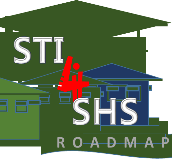Home
Project Rationale
There is a plethora of international and local drivers for the adoption of alternative and innovative technologies in the built environment in general, and in human settlements sector in particular. These include climate change, the global energy and financial crises, resource depletion and environmental degradation. It is recognised that transition to an environmentally, and socioeconomically sustainable future is dependent on successful adoption of appropriate technological innovation, and that technology and innovation can potentially pave the way to achieve progressive realisation of the Constitutional right to access to adequate housing and the pursuit of improved quality of household life. Furthermore, the effective application of science, technology and innovation (STI) can be a transformative instrument in addressing South Africa’s most urgent and significant societal risks, for example, to stimulate sustainable, decent work opportunities (National Planning Commission, 2012).
It is necessary to ensure that investment is prioritised and targeted and that barriers are effectively removed in order to achieve successful mainstreaming of selected innovative technologies. Achieving sustainable development and moving towards a situation of sustainable living through the application of appropriate technology and identifying potential partners and markets is not a once-off activity, but a process that requires a phased approach and on-going communication and consultation with stakeholders. Critical success factors must be in place in support of the whole technology ecosystem. These include:
- identification and selection of competing technologies;
- provision of necessary conditions for their development and maturation;
- creation and development of markets;
- support to entrepreneurs, SMMEs and investors;
- support for production technologies;
- support for the scale-up of production and implementation of technologies.
Goal and Outcomes
To support local technological innovation in the human settlements space, a suitable technology roadmap will be devised. This needs to be a flexible, yet robust framework, to respond to and support emerging innovative technologies, in a systematic and evidence-based manner, so that appropriate technologies can be identified and mainstreamed.
This roadmap for the adoption of science, innovation and technology for sustainable human settlements ("STI 4 SHS") will be crafted between April 2018 and September 2019. The project team will embark on a consultation process with role-players and key stakeholders, as well as investigate national and international practice, to inform and develop the STI 4 SHS roadmap. The project will formally establish a strategic alliance through a National Forum for STI 4 SHS to lead the way for its subsequent implementation.
